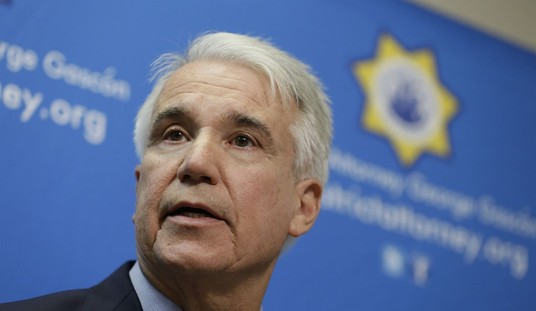One gets the impression that America’s broad support for Israel’s mission in Gaza over that of Hamas militants, support reflected in policy in Washington, is evolving into an obsession for members of the press. In fact, it seems that the more stubbornly Americans cling to their support for their country’s democratic ally in the Middle East, the more frenetic and scolding the media’s tone has become while covering the conflict.
Over a month into the current crisis, a NBC News/Wall Street Journal/Marist poll found that a significant plurality continue to sympathize with Israel over Palestinians. 43 percent of Americans said they back Israel compared to just 14 percent who claim to support Palestinians generally. This is, however, misleading as Israel’s current conflict is not with the Palestinian Authority but with Hamas – the ruling faction in Gaza. Unsurprisingly, Americans are even less friendly toward this group which the U.S. State Department lists as a terrorist organization. Only 7 percent of Americans told NBC/WSJ pollsters that they back Hamas while 54 percent support Israel.
America’s sentiments are not unfounded or chauvinistic display of support for a historic ally. In spite of being lectured endlessly by the American government to expend even more energy in order to limit civilian casualties in Gaza, Israel’s rules of engagement are far more self-limiting and crippling than any to which the U.S. would agree to abide by.
Front Page Magazine quotes a report which summarizes the extensive lengths to which the Israeli Defense Forces go in order to limit civilian casualties, often resulting in decreased operational capacity and IDF casualties.
Testimony that is reaching us from fighter pilots who provide close air assistance to the combat soldiers who are currently fighting in the field,” Channel 2′s military correspondent Nir Dvori reported, “about growing frustration over the fact that they hear the forces below them on the ground asking for cover and close air support when they see the terrorists drawing near from short range, firing at them, and there is no approval, because of various limitations, so as not to hit innocent civilians, and out of concern not to hit uninvolved people, and for this reason they cannot always give covering fire, cannot always fire, and so the frustration is that to some extent, they are leaving the fighters on their own to fight on the ground…”
Ynet’s veteran defense analyst Ron Ben Yishai reported that one of the reasons that Hamas was prepared to face Israeli ground troops in the Shejaiya neighborhood, where IDF suffered 13 killed in one day of fighting, is that the residents were given ample advance notice of the IDF’s intent to enter the neighborhood.
IDF Chief of Staff Lt. Gen. Benny Gantz took pride in the fact that the IDF takes such care to notify residents of its attack plans. “We cannot agree for Hamas to place civilians in our path,” he said earlier this week. “So what we have done is to warn the civilians over and over again to evacuate. There are no armies like this, which drop leaflets, call on the phone, bomb next to the target or carry out a ‘knock on the roof,’ and even disperse the residents with smoke.
The press has been broadcasting all of this. Anyone who has watched an evening news report in the last month has likely seen the “knock on the roof” warning strikes and the leafleting which occurs before a surgical Israeli munition levels a single structure while leaving the surrounding buildings standing.
Occasionally, a few Americans will see a familiar face – like Hamas spokesman Osama Hamdan who recently appeared on CNN with anchor Don Lemon in support of the terror group ruling Gaza – saying things in Arabic which Americans recognize as barbaric anti-Semitism.
Take, for example, this clip of Hamdan appearing on the Lebanon-based al-Quds television network last week. “We all remember how the Jews used to slaughter Christians, in order to mix their blood in their holy matzos,” he noted.
America’s collective memory of such tales must have faded in the intervening centuries.
This is not to say that Israel is infallible, or that there have been no errors in judgment or unpleasantness in this conflict. Not every piece of ordnance Israel uses is precision, and Hamas is often successful in its efforts to put civilians in the line of Israeli fire. War is horrible, and it is a utopian dream to suggest that all atrocities resulting from combat can be prevented.
While America’s support for the Israeli cause is solid, the opposite appears to be true in Europe where anti-Semitic riots have become a regular feature of life in Western European nations like Germany, France, and England. In the American media, too, one gets the sense that America’s close intergovernmental relationship with Israel is a source of endless consternation.
Take, for example, the media landscape in just the last several days.
Vox.com’s Zack Beauchamp expressed his concern over the fact that the White House is unlikely to follow up their harsh scolding of Israel for striking a U.N. school in Gaza (institutions that the U.N. has conceded Gazans have used as weapons depots) with concrete actions aimed at isolating the Middle East’s only democracy in international institutions.
“As harsh as the administration’s language has been in the past few days, it’s hardly been backed up by any meaningful public action pressuring Israel,” Beauchamp wrote. “There’s zero indication that the US is going to take tangible steps to punish Israel, either by limiting defense cooperation or letting through a UN Security Council resolution condemning Israel’s conduct in the Gaza war.”
On Monday, CNN’s Chris Cuomo buffeted State Dept. spokeswoman Jennifer Psaki with questions about America’s military support for Israel, going so far as to suggest America is complicit in the deaths of Gaza’s civilians. “You say this is wrong, you can’t do this kind of shelling or targeted attacks,” Cuomo said of the recent attack on a school. “You are providing the weapons and artillery that allow these attacks to continue. Does that complicate a message of humanity coming from the United States?”
This instinct in the press to reward Hamas’ strategy of ensuring maximum civilian casualties in order to turn global opinion against Israel is a bipartisan one.
“The prolonged killing of children and women in Palestinian territories will only serve to weaken Israel and strengthen Hamas,” MSNBC’s Joe Scarborough articulated in a Politico op-ed. Indeed, that is the entirety of Hamas’ strategic approach to combat with Israel.
“Every day that goes by with images of children being pulled out of the rubble of bombed-out schools, hospitals and public markets is a day that only makes Hamas stronger and threatens Israel’s long-term security,” he added. “And blindly supporting Israel’s politicians when their actions may be strengthening Hamas is no way to show our support or friendship.”
Morehouse College professor Marc Lamont Hill told CNN anchor Carol Costello on Monday that the United States is sacrificing its moral authority by supporting Israel both rhetorically and substantially. “It’s suggesting that there’s an unjust war going on that innocent civilians are being killed and U.N. schools and other safe havens and yet they’re doing nothing to stop it from happening,” he said of American policy toward Israel. “They could control this war at this point. They could end this right now if they want to.”
Tell that to John Kerry.
Hill’s conservative counterpart in that segment, New York Times columnist Ross Douthat, favorably entertained the notion of cutting off military support for Israel, though he avoided making any claims about the morality of that policy prescription.
The American press has an odd blind spot when it comes to the public’s support for Israel. It seems the media is attempting to educate the public that their support for the Jewish State is not founded in logic but on tradition. The media, in fact, might be better served by taking a lesson from the public, which is watching the situation in the Middle East closer and more scrupulously than the elite press has given them credit for.
This post has been updated since its original publication.








Join the conversation as a VIP Member